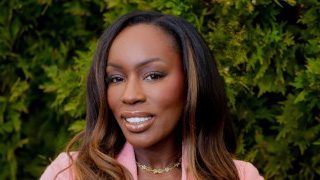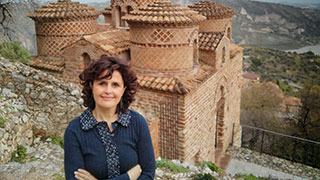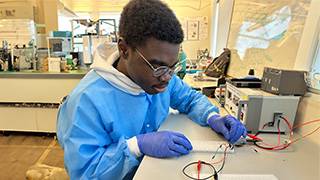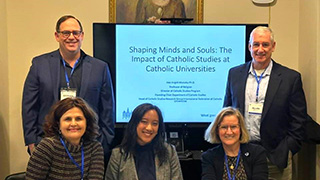Synodal Church:Tradition, Kairós, Challenge
Wednesday, August 23, 2023

Monsignor Piero Coda
The Department of Catholic Studies and the International Federation of Catholic Universities are pleased to present "Synodal Church: Tradition, Kairós, Challenges," a lecture by the esteemed Monsignor Piero Coda.
This event will take place at 5 p.m. on Tuesday, September 26, in the Chancellor's Suite (ground floor of the Bishop Dougherty University Center).
About the Lecture
We have been summoned into the synodal process, which is meant to foster a spiritual,
cultural, structural and missionary conversion of the Church as God’s people on the
way. And it is imposing itself as a kairós, which has a strategically significant
reach. It puts two things into fruitful tension, in fact, which have been learned
and which characterize the Catholic Church’s conscience today; moreover, these things
arouse a very lively interest among the other churches as well. On one hand, there
is the perception in faith that synodality is a “constitutive dimension” of the Church;
the promise is taken up in hope, on the other hand, that "It is precisely this path
of synodality which God expects of the Church of the third millennium" (Pope Francis's
Address at the Ceremony Commemorating the 50th Anniversary of the Institution of the
Synod of Bishops, October 17, 2015).
The assumption of this promise comes about in faithful, creative continuity with the Traditio Vivens Ecclesiae; its proximate reason for being lies in the event of the Second Vatican Council and in that council's proposition of the Church’s mission as "sacrament of God’s kingdom" (see Lumen Gentium 5; Gaudium et Spes 45) since it is Ecclesia de Trinitate (see Lumen Gentium 4) in a "mutua relatio" of critical discernment with the world (see Gaudium et Spes 40). It is in this ecclesiological context that Pope Francis formulates the affirmation whereby "We can find the point of mysterious but real convergence of the Trinity in history in the reality we call 'synodality'" (Video message of the Holy Father on the occasion of the Plenary session of the Pontifical Commission for Latin America [May 24-27, 2022]). Synodality is effectively proposed as the "place" and "time" for "convergence" – in other words, for the incisive entrance through the Church's mission, of God the Father, Son and Holy Spirit, into the historical process to become present and active in it as grace in synergy with human freedom. This is precisely because the Church is "...in Christ like a sacrament or as a sign and instrument both of a very closely knit union with God and of the unity of the whole human race" (Lumen Gentium 1). This opens up a number of promising prospects for a lively experience of faith.
This event is also co-sponsored by the University Core.
About the Speaker
Professor Piero Coda is currently the Secretary General of the International Theological
Commission, appointed by Pope Francis in September of 2021. He is Full Professor of
Trinitarian Ontology in the Department of Theology, Philosophy and Human Sciences
at Sophia University Institute near Florence, where he was the first President from
2008-2020. He is a Consultor of the Dicastery for the Doctrine of the Faith and of
the Dicastery for Promoting Christian Unity, and Director of the Interdisciplinary
Center of Studies founded by Chiara Lubich. He is also a member of the Pontifical
Academy of Theology (serving as Prelate Secretary 2003-2008), the Italian Theological
Association (serving as President 2003-2011), the Joint International Commission for
Theological Dialogue between the Catholic Church and the Orthodox Church, as well
as the Coordinating Committee and Theological Commission in preparation of the 2023-2024
Synod of Bishops. He is a visiting professor at universities throughout the world;
he is also on the advisory board for many academic journals.
His most recent English language publication is From the Trinity, the Coming of God in Revelation and Theology (Catholic University of America Press, 2020). He obtained his Ph.D. in Philosophy at the University of Turin in 1978, his S.T.L. and S.T.D. in Dogmatic Theology respectively in 1983 and 1986 at the Lateran University where he taught from 1986 until 2000. He has received honorary doctorates in Taipei in 2019 in Philosophy at Fu Jen Catholic University and in Interreligious Dialogue at Dharma Drum Institute of Liberal Arts. He has engaged in dialogue throughout the world with practitioners and scholars of all the world’s major religions - with Shi'ite Muslims in Iran, with Hindus in India, with Buddhists in East Asia.
Categories: Faith and Service





